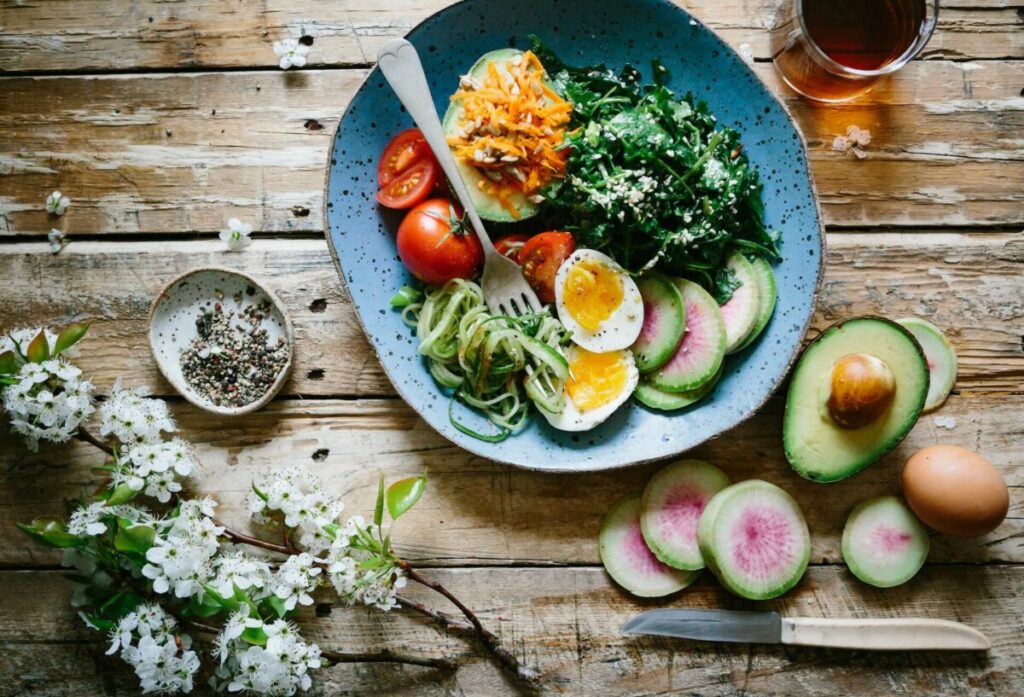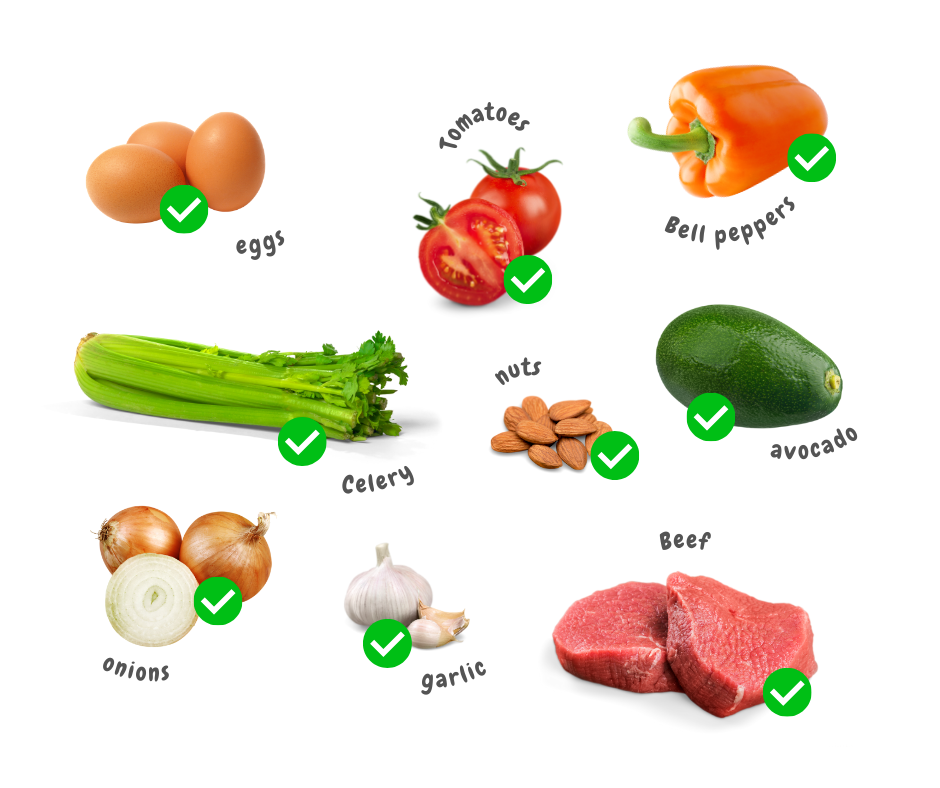A low carb diet has been gaining popularity in recent years, and for good reason. Various studies show that not only can it lead to weight loss, but it can also improve your overall health and well-being. So, whether you’re looking to shed a few pounds, boost your energy levels, or simply feel better in your own skin, a low carb diet might just be the answer. Let’s dive in and explore what this diet is all about, and how it can benefit you.
Contents
What is a low carb diet?
The low-carb diet is exactly what it sounds like – a diet that restricts carbohydrates. This means cutting back on foods like bread, pasta, and potatoes, and instead focusing on protein and fat sources like meat, fish, and avocados. The idea is that by reducing carbs, your body will enter a state of ketosis and start burning fat for fuel instead of glucose.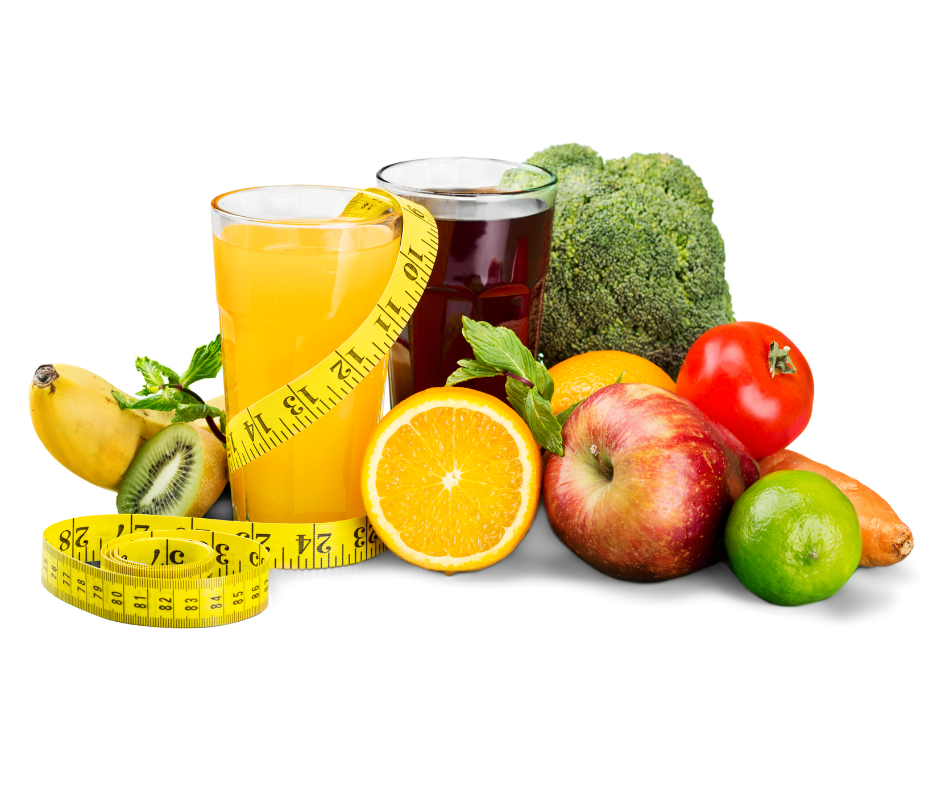
In fact, many studies confirm1 that a low carb diet is a good option for people wanting to lose weight. That being said, there are many benefits to the low-carb diet beyond just weight loss and blood sugar control. Some findings2 suggest that it could improve cholesterol levels and reduce inflammation in the body.One thing to keep in mind when considering a low-carb diet is that not all carbs are created equal.
There are simple carbs, like sugar and white bread, which are quickly broken down by our bodies and can lead to blood sugar spikes and crashes. Then there are complex carbs, like whole grains and vegetables, which take longer to digest and provide sustained energy. This distinction will be crucial when choosing the right low-carb-diet products for you.
🔬 Scientific evidence
A low carbohydrate diet could help in reducing body weight without any significant harmful effect.
It’s worth to mention that some people find it difficult to stick to this diet because of the restrictions on certain foods, while others may experience side effects like constipation or bad breath from ketosis.
Foods to eat
When planning a low-carb diet, focus on whole, nutrient-dense foods that are low in carbohydrates. Non-starchy vegetables like leafy greens, broccoli, cauliflower, zucchini, bell peppers, and asparagus should be the mainstay of your meals. These vegetables provide essential vitamins, minerals, and fiber while being low in calories and carbs.
In addition to vegetables, add some healthy fats to your low carb meal plan. Good sources of healthy fats include avocado, olive oil, coconut oil, nuts, and seeds. These fats provide satiety and help to stabilize blood sugar, which may be crucial for people struggling with diabetes3.
Protein sources are also a vital part of a low-carb diet. Lean meat like chicken, turkey, and fish is an excellent option as they are high in protein and low in carbohydrates. Red meat like grass-fed beef, lamb, and pork can also be included in moderation as they provide essential nutrients like iron and zinc. Eggs are another fantastic source of protein and can be consumed in a variety of ways.
Foods to avoid
One group of foods to avoid on a low carb diet is refined carbohydrates. These types of carbohydrates have been stripped of their natural fiber and nutrients, leading to a rapid spike in blood sugar levels. Such a spike can result in cravings and hunger pangs, making it challenging to maintain a low carb diet’s restrictions.
Also, take any sugary drinks off your shopping list. Such drinks are packed with added sugars and high in carbohydrates, making it challenging to stay within a low carb diet’s recommended carbohydrate intake.
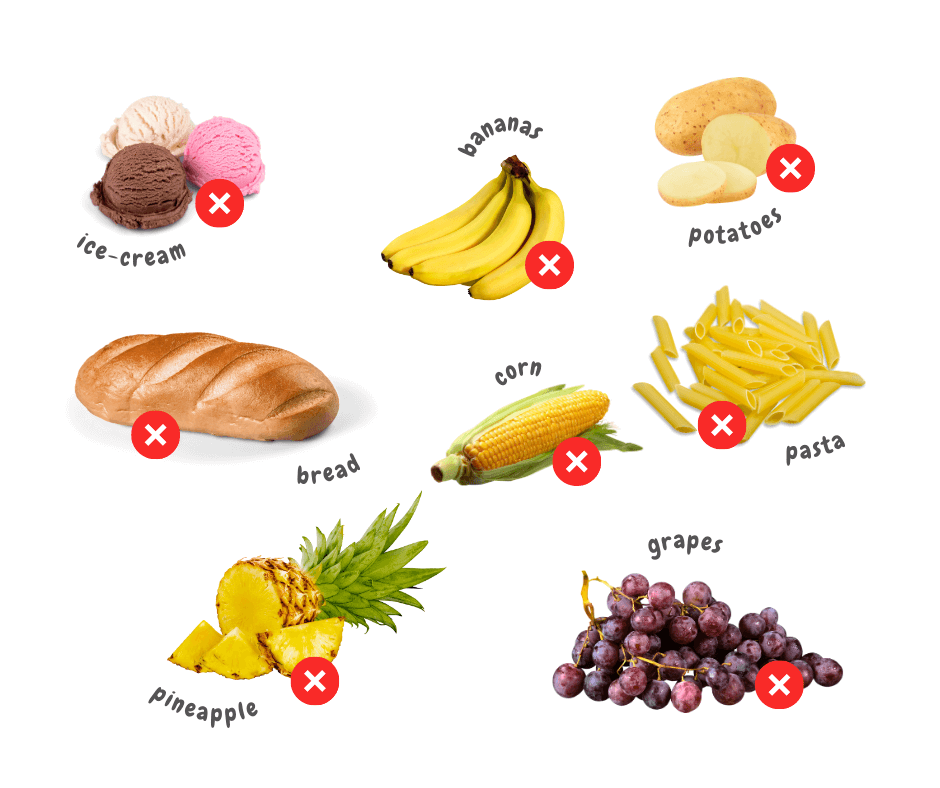
Processed and packaged foods, like pre-packaged snacks and meals, are also best avoided on a low carb diet4. They are often loaded with added sugars, unhealthy fats, and refined carbohydrates, making them a really poor choice.
Lastly, limit your consumption of fruits and starchy vegetables, including potatoes and bananas. These foods may contain natural sugars and higher carbohydrate content, which can interfere with a low carb diet’s intended benefits.
🔬 Scientific evidence
Low-carbohydrate diets should obtain protein and fat from foods other than red and processed meat.
Can I eat sweet potatoes?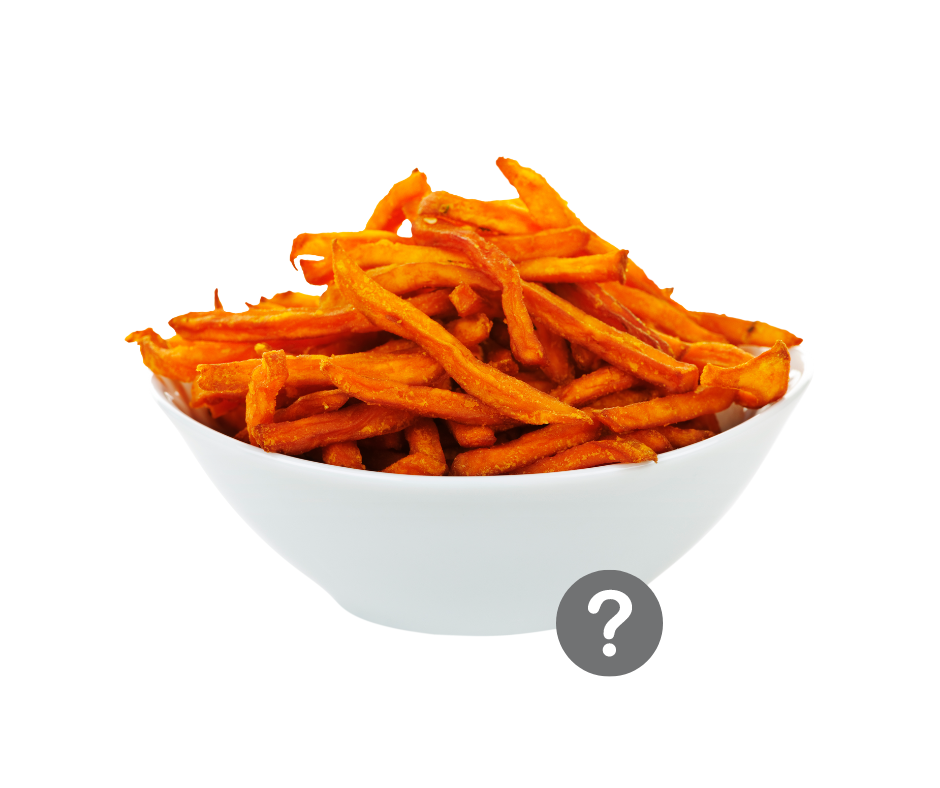
Here again, moderation is key.
While sweet potatoes are higher in carbs compared to other non-starchy vegetables, they are also nutrient-dense and packed with fiber, vitamins, and minerals.
To make sweet potatoes a healthier choice on a low carb diet, consider the following tips:
combine sweet potatoes with a protein source like grilled chicken or salmon to balance out the carbs and help keep you full, try topping sweet potatoes with butter, cinnamon, and a sprinkle of nuts for extra flavor and healthy fats.
Can I eat cheese?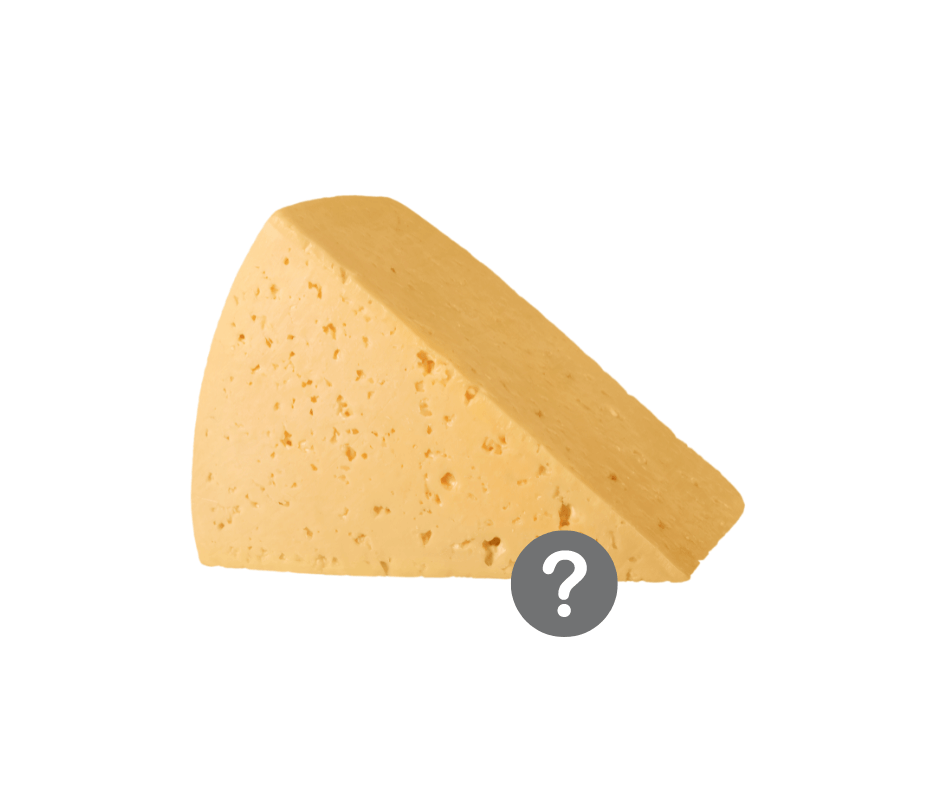
There are definitely some types that are better suited to a low carb diet than others. Hard cheeses like cheddar, parmesan, and Swiss tend to be lower in carbohydrates than softer cheeses like brie or goat cheese.
Additionally, processed cheeses like American cheese slices or cheese spreads often contain added sugars or other ingredients that may not be ideal for a low carb diet.
Of course, it doesn’t mean cheese can’t be high in calories and fat. While these macronutrients are not inherently bad, consuming too much of them can lead to weight gain or other health issues.
Can I eat apples?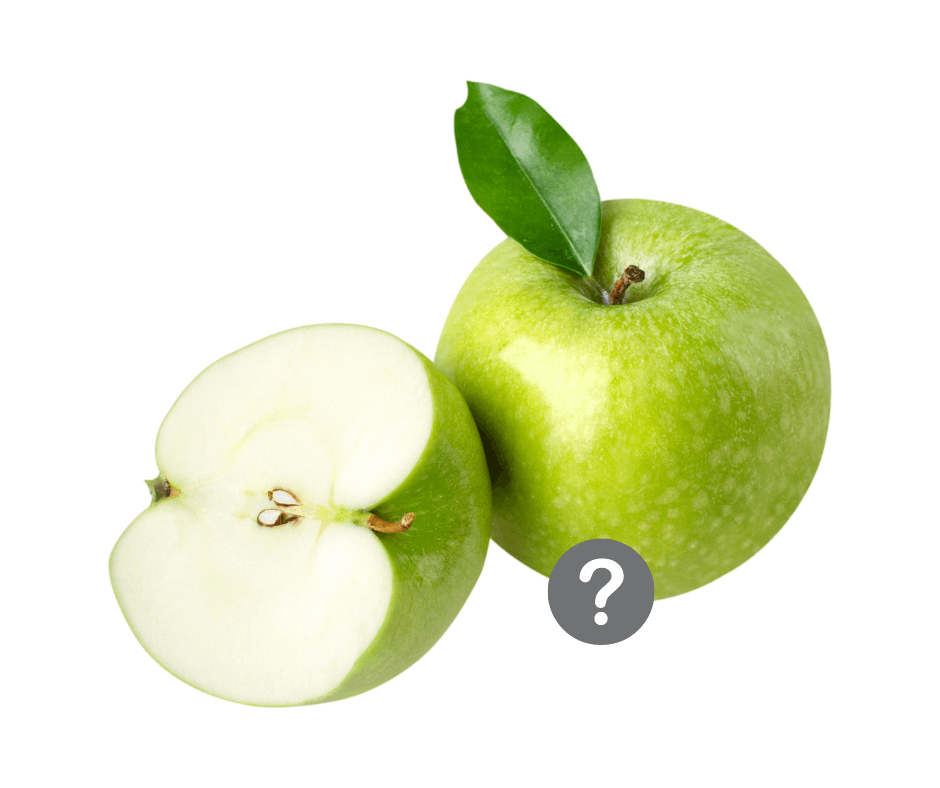
An apple a day keeps the doctor away? While it’s true that apples are nutritious, they still contain carbohydrates and can contribute to your daily carb intake.
One medium-sized apple contains around 20 grams of carbs, so it’s important to be mindful of how many you’re consuming. You may want to limit your apple intake to half or even a quarter of an apple at a time.
Note that the way you eat your apple can impact its carb content. For example, if you juice your apple, you’re removing the fiber and increasing the concentration of carbs, which can spike blood sugar levels.
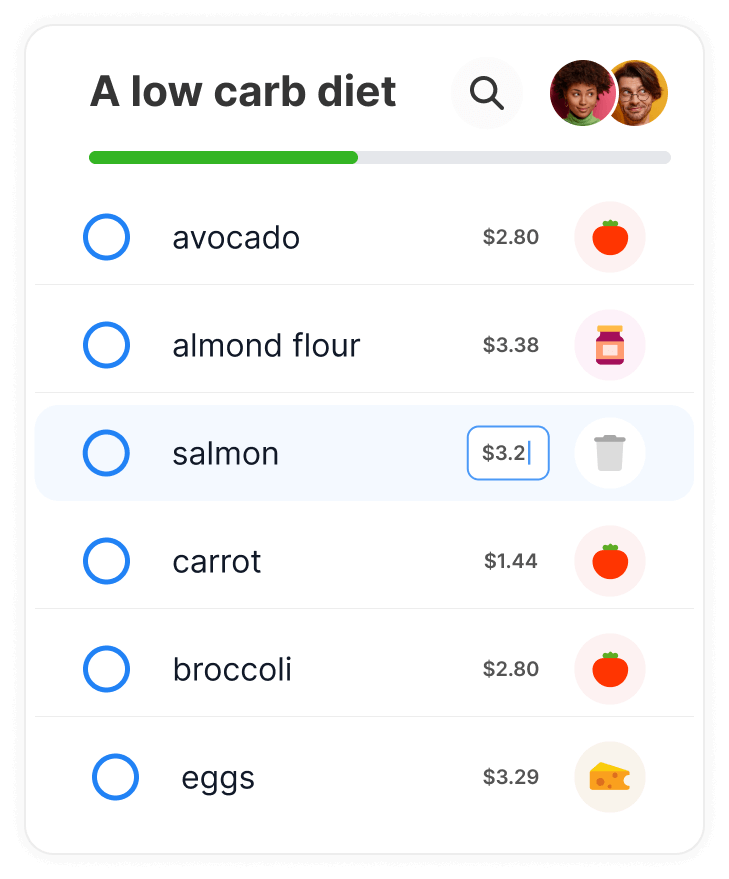
Get a low carb diet grocery list on your phone!
- Add & remove items
- Sort items by store aisles
- Share the list with your partner
Available on Google Play & App Store
What desserts can I eat?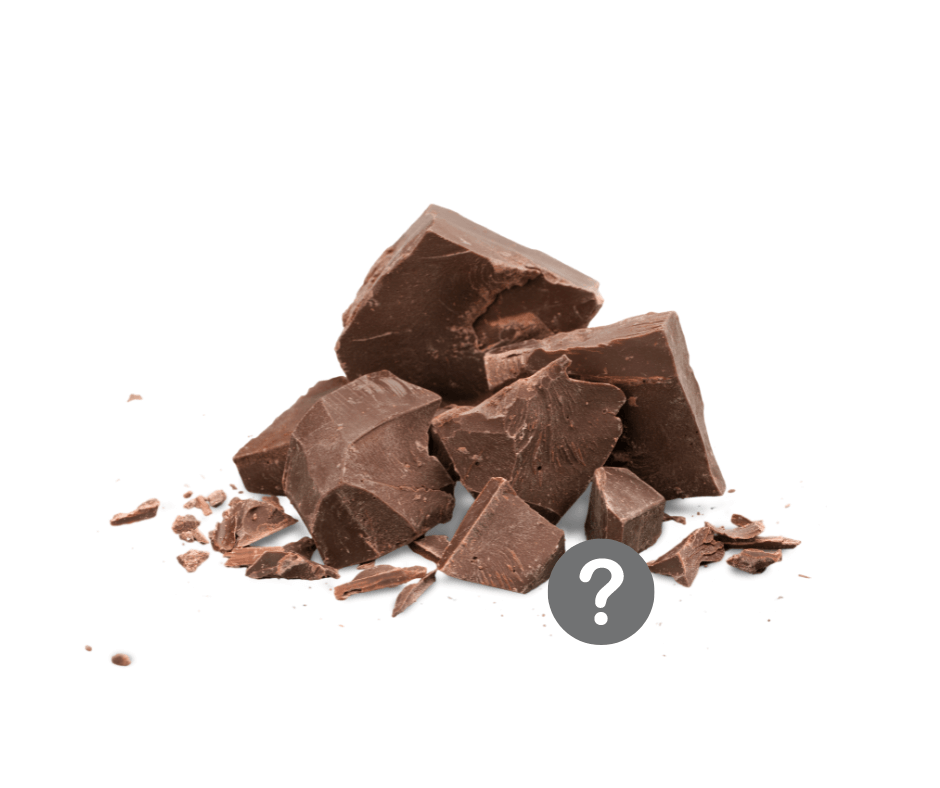
When it comes to low carb desserts, focus on ingredients such as almond flour, coconut flour, and natural sweeteners like stevia or erythritol. You can use them to create delicious treats such as almond flour brownies, coconut flour pancakes, or sugar-free cheesecake.
Other low carb recipes include:
- Chocolate avocado pudding
- Sugar-free cheesecake
- Low-carb berry crumble
- Coconut milk chia seed pudding
- Low-carb vanilla ice cream
- Chocolate peanut butter fat bombs
- Cinnamon and vanilla-flavored whipped cream
- Low-carb berry sorbet.
Just keep portion sizes in check and avoid overindulging in sweets. Keep in mind that even a small serving of a delicious low carb dessert can satisfy your sweet tooth and keep you on track with your health goals.
What snacks can I eat?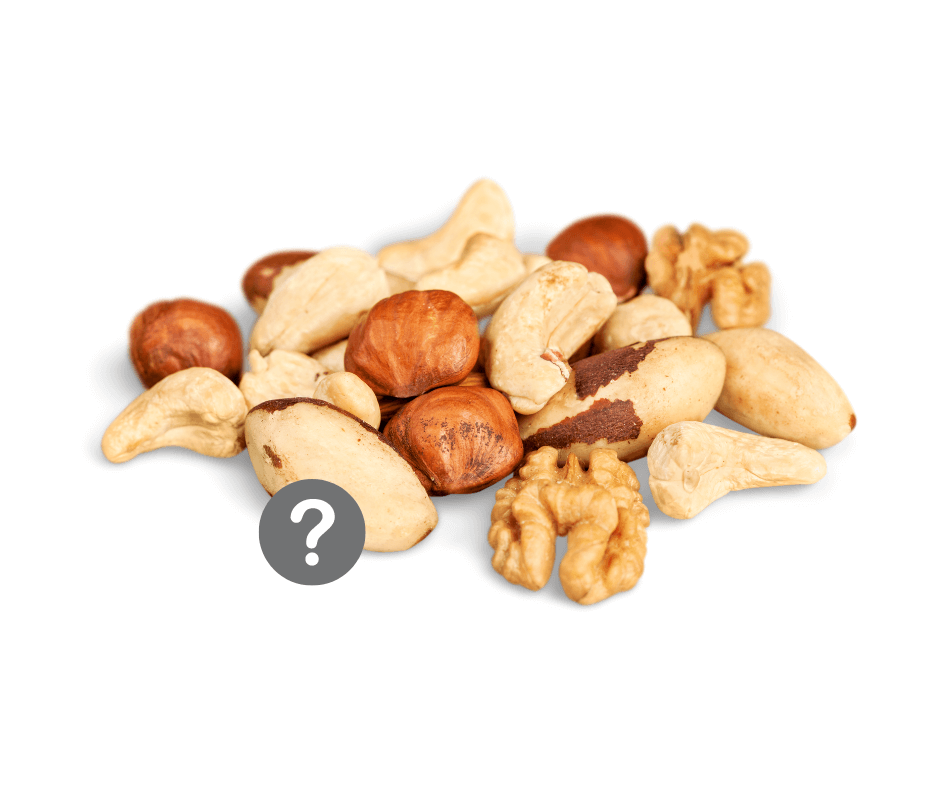
One of the best low carb snacks is nuts. They’re not only high in healthy fats and protein, but also low in carbs. Almonds, walnuts, and macadamia nuts are great choices. Just make sure to stick to a small handful to avoid overdoing it.
Another great option is celery sticks with almond butter. The crunch of the celery combined with the creamy nut butter is a satisfying and low carb treat. And speaking of nut butter, you can also try dipping raw veggies like carrots or cucumbers in it for a healthy and delicious snack.
Cheese is another low carb snack that’s easy to grab and go. String cheese, sliced cheese, and cheese cubes are all good options. Just be sure to check the labels and choose varieties that are lower in carbs.
If you’re in the mood for something sweet, go for berries. They’re low in carbs and high in fiber and antioxidants. You can enjoy them plain, or mix them with some whipped cream for a decadent treat.
Fill your diet with missing nutrients
How to add more fiber to a low carb diet?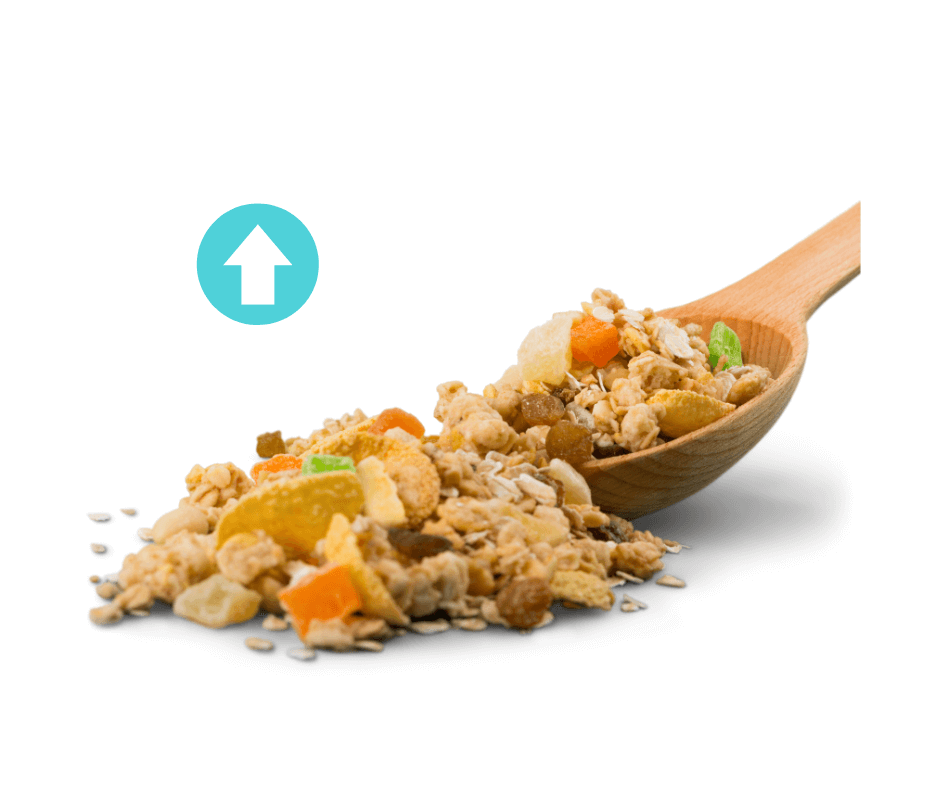
Adding fiber to a low carb diet may seem like a challenging task, but it’s essential for maintaining optimal health. Fiber has numerous benefits, such as aiding digestion, promoting satiety, and preventing chronic diseases.
Firstly, add more non-starchy vegetables like broccoli, cauliflower, and leafy greens to your daily meal plan. These veggies are low in carbs and high in fiber, making them an ideal addition to any low carb meal.
Secondly, nuts. Almonds, chia seeds, and flax seeds are all excellent sources of fiber that are low in carbs.
Lastly, buy fruits like berries and avocados to increase your fiber intake. These fruits are high in fiber and low in carbs, making them an ideal snack option for this diet.
How to add more protein to a low carb diet?
One great way to do that is by incorporating high-protein snacks into your day. Nuts and seeds, such as almonds, pistachios, and sunflower seeds, are way to go. Greek yogurt is another excellent snack choice that packs in plenty of protein while keeping carb counts low.
In addition to snacks, be sure to include plenty of protein-rich foods other than red meat in your meals like this study suggests5. Fish, chicken are all bursting with protein and can be prepared in a variety of ways to keep your taste buds interested.
If you prefer a vegetarian-friendly protein boost, try incorporating tofu or tempeh into your meals.
Low carb diet vs keto diet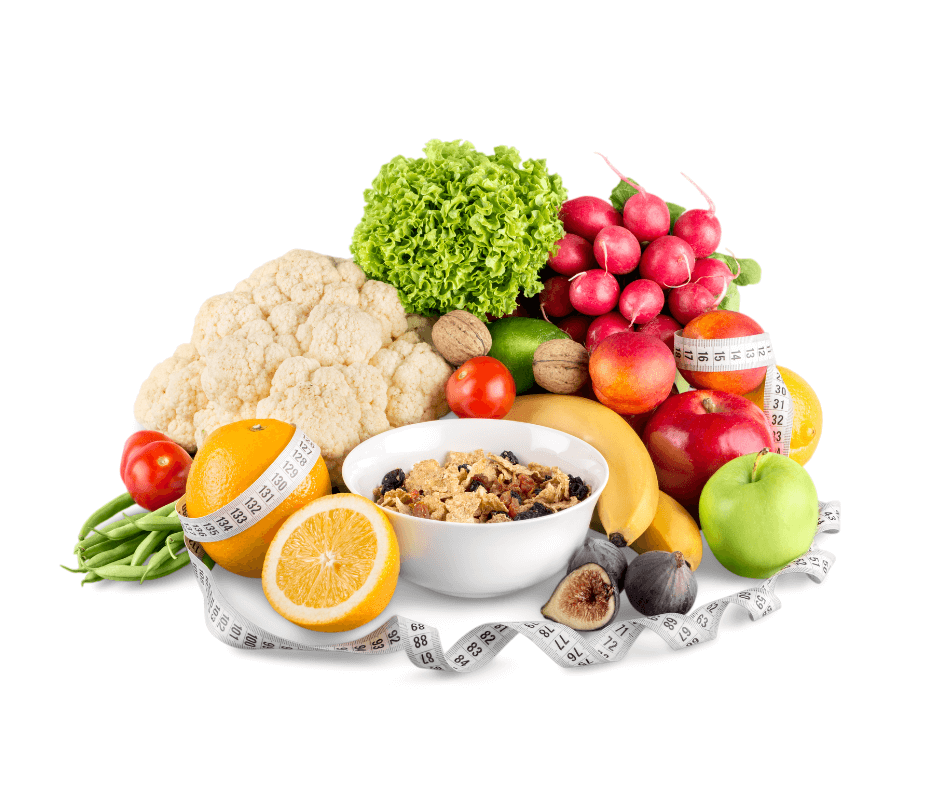
While both diets share some similarities and have gained popularity in recent years, they have a slightly different effect on your body and don’t share the same level of difficulty.
A low carb diet involves reducing carbohydrate intake, which can lead to weight loss6 and improved blood sugar control. Although it’s fairly easy to follow, this diet may lead to deficiencies in essential nutrients found in your carbohydrate-rich foods, such as fiber and B vitamins.
The keto diet also involves consuming low amounts of carbohydrates, but one could argue this diet is even more restrictive and can be difficult to maintain in the long term. Additionally, it can increase the risk of heart disease and kidney stones due to its high fat content.
In summary, while both low carb and keto diets have potential benefits, it is important to approach them with caution and to consult with a registered dietitian before embarking on either one.
Low carb diet food list
Now that you read all of the above, you’re more than prepared to kick off your new great diet. Below, you will find your grocery list.
Meat
Fish
Dairy & Eggs
Nuts
Berries
|
Vegetables
Seeds
Sweets
Flour
|
Feel free to use the PDF version if you prefer to use the old-fashioned way. Otherwise, do yourself a favor and get this list straight to your phone so you can add, remove & edit all the items easily.
Sources
1 https://api.semanticscholar.org/CorpusID:207539049
2 https://api.semanticscholar.org/CorpusID:12956116
3 https://pubmed.ncbi.nlm.nih.gov/15767618/
4 https://api.semanticscholar.org/CorpusID:11148351
5 https://api.semanticscholar.org/CorpusID:11148351
6 https://api.semanticscholar.org/CorpusID:27436826
